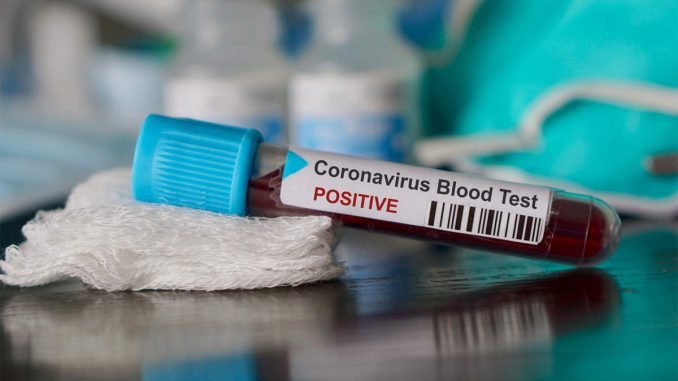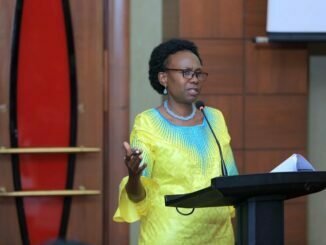
Kampala, Uganda | URN | The number of COVID-19 confirmed cases has surpassed the 100-mark after a sample of a Tanzanian truck driver tested positive.
The case is a 32-year-old driver who entered the country via the Mutukula border. His sample was among 3,091 samples that were tested at the Uganda Virus Research Institute-UVRI.
Despite the increase in cases, the Ministry of Health officials says that this should not scare people. The COVID-19 incident commander at the Ministry of Health, Atek Kagirita says that the country’s increased cases can be controlled.
“Most of the cases that we are getting now are imported from truck drivers. If we can address the issue of truck drivers getting tested at the borders as they enter, we shall be okay,” Kagirita said.
Last month, the health ministry announced plans to deploy mobile testing vans at busy border posts.
The drivers will be tested as they enter the country and will be mandated to wait for their results before they proceed with their deliveries and, according to Kagirita, positive cases would then be stopped from crossing into Uganda.
The news of Uganda’s 101 cases comes as the country is running out of test kits. According to reports from UVRI, the country only has kits to last four days.
Truck drivers giving false information at entry points
The Ministry of Health and other agencies are facing problems tracking truck drivers who have tested positive to coronavirus (COVID) 19disease.
According to officials on the National COVID-19 Task Force, it has become increasingly hard to trace drivers and their contacts because as they enter the country, truck drivers are providing false number plates and mobile contacts to immigration and customs officials at border crossings.
Atek Kagirita, the ministry of health COVID-19 incident commander says instead of registering the number plates, the clever driver registers the trailer number. As a result, officials are unsure about the whereabouts of 13 truck drivers who tested positive and are believed to have entered the country and exited without coming into contact with health officials after their results were released.
When truck drivers enter the country, they are first checked by Uganda Revenue Authority (URA) before proceeding to the Port health office where they register and undergo a COVID-19 test. After the test, they proceed to immigration for clearance and later proceed to URA before continuing on their journey.
In addition to untruthful drivers, Kagirita says that they are facing a problem of low testing capacity. He says that by the time results are released at the Uganda Virus Research Institute, many drivers have either left or interacted with many people.
Prof Pontiano Kaleebu, the Executive Director of the Uganda Virus Research Institute -UVRI says that the laboratory releases results as soon as they can. The institute tests about 1,000 people on a daily basis.
Last month, the health ministry was supposed to have deployed three mobile laboratories donated by the East African Community. The vans were supposed to decrease on the crowds at the border and also quicken the testing process.
However, due to a lack of Polymerase Chain Reaction -PCR testing kits, the vans are sitting idle in Kampala at the Luzira based Central Public Health Laboratory. Once the PCR testing kits are delivered, they will be stationed at Busia and Elegu border crossings.
Read Also: 32 sex workers suspected contacts of positive COVID-19 truck driver quarantined in Kabale
Kagirita says if they had the vans, truck drivers would leave the border when their COVID-19 status is known, reducing the risk they currently present.
In addition to this, the health ministry is introducing an integrated Tracking System which aims at making sure that the information given to URA, immigration and health officials is similar and computerized. This, Kagirita says, will help stop inaccurate information given to the health officials while other officials have the truth.
At the moment, over 30 truck drivers have tested positive for COVID-19 and according to Kagirita, they are the country’s biggest worry at the moment.



